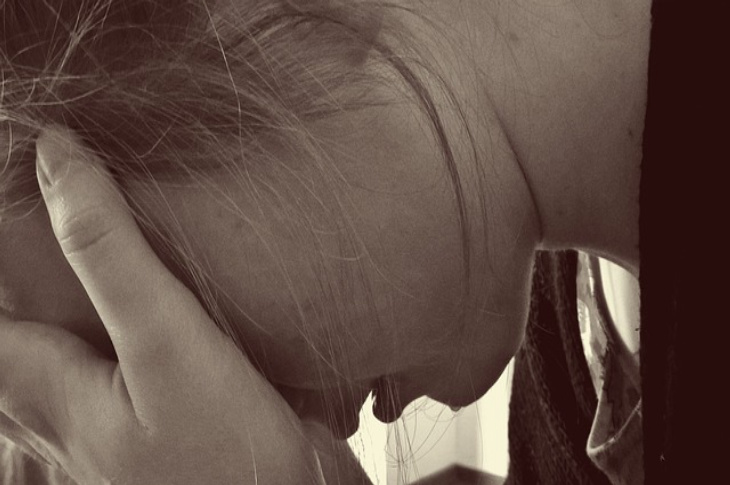What Is Domestic Violence Explain Domestic Violence Act.
Domestic violence is a pervasive social issue that affects individuals across various demographics and backgrounds. The Domestic Violence Act, enacted to address and prevent such violence, plays a crucial role in providing legal recourse and protection to victims. In this comprehensive guide, we'll delve into the dynamics of domestic violence, the provisions of the Domestic Violence Act, and the avenues available for seeking assistance and support.
-
Defining Domestic Violence:
-
Explaining domestic violence as a pattern of abusive behavior used by one partner to gain power and control over another in an intimate relationship. It includes physical, emotional, sexual, and economic abuse.
-
-
Understanding the Domestic Violence Act:
-
Providing an overview of the Domestic Violence Act, its objectives, and the legal framework it provides for addressing domestic violence in India.
-
-
Provisions of the Domestic Violence Act:
-
Detailing the key provisions of the Act, including definitions of domestic violence, the rights of victims, and the responsibilities of law enforcement agencies and service providers.
-
-
Forms of Domestic Violence:
-
Exploring the different forms of domestic violence recognized by the Act, such as physical abuse, verbal and emotional abuse, sexual abuse, and economic abuse.
-
-
Rights of Victims under the Act:
-
Outlining the rights afforded to victims under the Domestic Violence Act, including the right to protection, residence orders, monetary relief, and access to medical and legal assistance.
-
-
Legal Recourse for Victims:
-
Discussing the legal remedies available to victims under the Act, including filing complaints with the police, seeking protection orders, and accessing support services through Protection Officers and Service Providers.
-
-
Role of Protection Officers:
-
Explaining the role of Protection Officers appointed under the Act, who are responsible for assisting victims, facilitating access to support services, and implementing protection orders.
-
-
Role of Service Providers:
- Highlighting the role of Service Providers designated under the Act, such as shelters, counseling centers, and medical facilities, in providing support and assistance to victims.
-
Importance of Awareness and Education:
-
Emphasizing the importance of raising awareness about domestic violence, promoting gender equality, and educating communities about the provisions of the Domestic Violence Act.
-
-
Seeking Support and Assistance:
-
Providing information on helplines, support groups, and legal aid services available to victims of domestic violence, and encouraging individuals to seek help and support when needed.
-
Conclusion:
The Domestic Violence Act serves as a crucial legal instrument for addressing and combating domestic violence in India. By understanding the Act's provisions and accessing the support services available, victims can assert their rights, seek protection, and break free from the cycle of abuse. It is imperative for society as a whole to work towards creating a safe and supportive environment for victims and survivors of domestic violence.
-
What is domestic violence?
- Domestic violence refers to a pattern of abusive behavior used by one partner to gain power and control over another in an intimate relationship. It encompasses physical, emotional, sexual, and economic abuse.
-
What is the Domestic Violence Act?
- The Domestic Violence Act, also known as the Protection of Women from Domestic Violence Act, 2005, is a legal framework enacted in India to address and prevent domestic violence. It provides protection and support to victims and lays down legal remedies for addressing domestic violence.
-
What are the objectives of the Domestic Violence Act?
- The objectives of the Domestic Violence Act include providing immediate relief and protection to victims of domestic violence, preventing the occurrence of domestic violence, and ensuring the rights of victims to live a life free from violence and abuse.
-
What forms of domestic violence are recognized under the Act?
- The Domestic Violence Act recognizes various forms of domestic violence, including physical abuse, verbal and emotional abuse, sexual abuse, and economic abuse.
-
What are the rights of victims under the Domestic Violence Act?
- Victims of domestic violence have several rights under the Domestic Violence Act, including the right to protection, the right to reside in their shared household, the right to monetary relief, and access to medical and legal assistance.
-
What legal remedies are available to victims under the Act?
- Victims of domestic violence can seek legal remedies such as filing complaints with the police, obtaining protection orders from the court, and accessing support services through Protection Officers and Service Providers appointed under the Act.
-
What is the role of Protection Officers under the Act?
- Protection Officers are responsible for assisting victims of domestic violence, facilitating access to support services, and implementing protection orders issued by the court to ensure the safety and well-being of victims.
-
What is the role of Service Providers under the Act?
- Service Providers, including shelters, counseling centers, and medical facilities, play a crucial role in providing support and assistance to victims of domestic violence, including emergency shelter, counseling, and medical treatment.
-
What is the importance of raising awareness about domestic violence?
- Raising awareness about domestic violence is essential to educate communities about the prevalence and impact of domestic violence, promote gender equality, and encourage victims to seek help and support.
-
Where can victims of domestic violence seek support and assistance?
- Victims of domestic violence can seek support and assistance from helplines, support groups, legal aid services, and government agencies such as Protection Officers and Service Providers designated under the Domestic Violence Act.
Trending



Ask a Lawyer